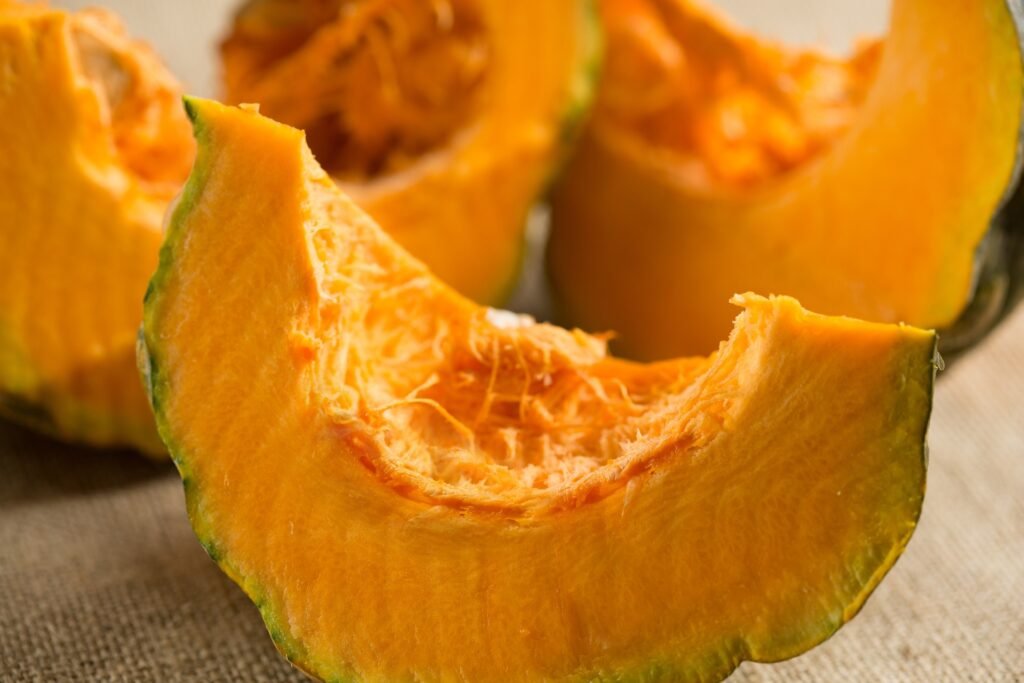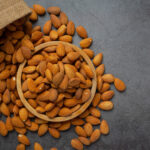
Table of Contents
Overview
Pumpkin, known for its vibrant orange color and association with autumn, is much more than a seasonal decoration. This nutrient-rich superfood is filled with essential vitamins, minerals, and antioxidants that offer a wide range of health benefits. In this article, we’ll explore the nutritional value of pumpkin, the numerous ways it can improve your health, and how to easily incorporate it into your diet.
Nutritional of Pumpkin
Pumpkin is low in calories but loaded with nutrients. Just one cup (about 245 grams) of cooked pumpkin provides:
- Calories: 49
- Protein: 2 grams
- Carbohydrates: 12 grams
- Fiber: 3 grams
- Vitamin A: 245% of the RDI (Recommended Daily Intake)
- Vitamin C: 19% of the RDI
- Potassium: 16% of the RDI
- Copper: 11% of the RDI
The standout nutrient in pumpkin is vitamin A, primarily in the form of beta-carotene, which contributes to better vision and a stronger immune system. Pumpkin is also rich in vitamin C, fiber, and potassium, which support overall wellness.
Health Benefits of Pumpkin
1. Supports Eye Health
Pumpkin’s high beta-carotene content, which converts to vitamin A in the body, plays a crucial role in maintaining good vision. Vitamin A supports the retina and helps prevent conditions like night blindness and age-related macular degeneration, a leading cause of vision loss
Related : Health Benefits of Zucchini
2. Boosts Immunity
Vitamin A helps strengthen the immune system by supporting the mucous membranes, which act as the body’s first line of defense against infections. Additionally, pumpkin’s vitamin C content enhances the production of white blood cells, essential for fighting infections and keeping the immune system strong.
3. Promotes Heart Health
Pumpkin’s high levels of potassium help regulate blood pressure, reducing the risk of heart disease and stroke. Its fiber content also aids in lowering bad cholesterol (LDL) and improving overall heart health.
4. Aids Weight Loss
Low in calories and high in fiber, pumpkin is a perfect food for those looking to lose or maintain weight. Its fiber helps promote fullness and reduce overall calorie intake, making it easier to stick to a healthy eating plan.
5. Improves Skin Health
Pumpkin is rich in antioxidants like beta-carotene, which help protect the skin from UV damage. Vitamin C also plays a key role in collagen production, keeping the skin firm, smooth, and youthful.
6. Supports Digestive Health
Pumpkin’s fiber not only promotes fullness but also supports gut health by aiding digestion. Fiber-rich foods like pumpkin help prevent constipation, promote regular bowel movements, and support a healthy digestive system.
7. Promotes Better Sleep
Pumpkin seeds contain tryptophan, an amino acid that helps produce serotonin, a hormone that regulates mood and sleep. Eating a handful of pumpkin seeds before bed can help improve sleep quality.
8. Balances Blood Sugar Levels
Pumpkin’s fiber slows the absorption of sugar in the bloodstream, helping to maintain stable blood sugar levels. This makes pumpkin a great food choice for those with diabetes or anyone looking to regulate their blood sugar.
How to Add Pumpkin to Your Diet
Pumpkin is a versatile ingredient that can be used in a variety of dishes, both sweet and savory. Here are some easy and tasty ways to include more pumpkin in your diet:
- Pumpkin Soup: Blend roasted pumpkin with vegetable broth, garlic, and spices for a creamy, nutritious soup.
- Pumpkin Puree: Add pumpkin puree to baked goods like muffins, pancakes, and breads for added moisture and flavor.
- Roasted Pumpkin: Cube pumpkin, toss with olive oil and seasonings, and roast it for a delicious and healthy side dish.
- Pumpkin Smoothies: Blend pumpkin puree with yogurt, banana, and a sprinkle of cinnamon for a flavorful and nutritious smoothie.
- Pumpkin Seeds: Don’t forget about pumpkin seeds! These are rich in healthy fats, magnesium, and zinc, and can be enjoyed roasted as a snack or added to salads.
The Takeaway
Pumpkin is much more than a fall treat; it’s a nutrient-packed food that offers a wide range of health benefits, from supporting your immune system to enhancing your vision and promoting heart health. With its low calorie count, high fiber content, and rich supply of vitamins and minerals, pumpkin makes a fantastic addition to any diet. Whether roasted, pureed, or used in soups and smoothies, incorporating pumpkin into your meals can have lasting positive effects on your health.
Make pumpkin a regular part of your diet and enjoy the many health benefits it has to offer
Frequently Asked Questions
Is pumpkin good for weight loss?
Yes, pumpkin is low in calories and high in fiber, making it an excellent food for weight loss. The fiber in pumpkin promotes fullness and helps reduce overall calorie intake, which can support weight management.
Can pumpkin improve my skin health?
Absolutely! Pumpkin is rich in beta-carotene, an antioxidant that helps protect the skin from UV damage. It also contains vitamin C, which plays a key role in collagen production, keeping the skin firm and youthful.
How can I incorporate pumpkin into my diet?
Pumpkin can be added to soups, smoothies, baked goods, and roasted dishes. You can also enjoy pumpkin seeds as a nutritious snack or sprinkle them on salads for added crunch and nutrients.












